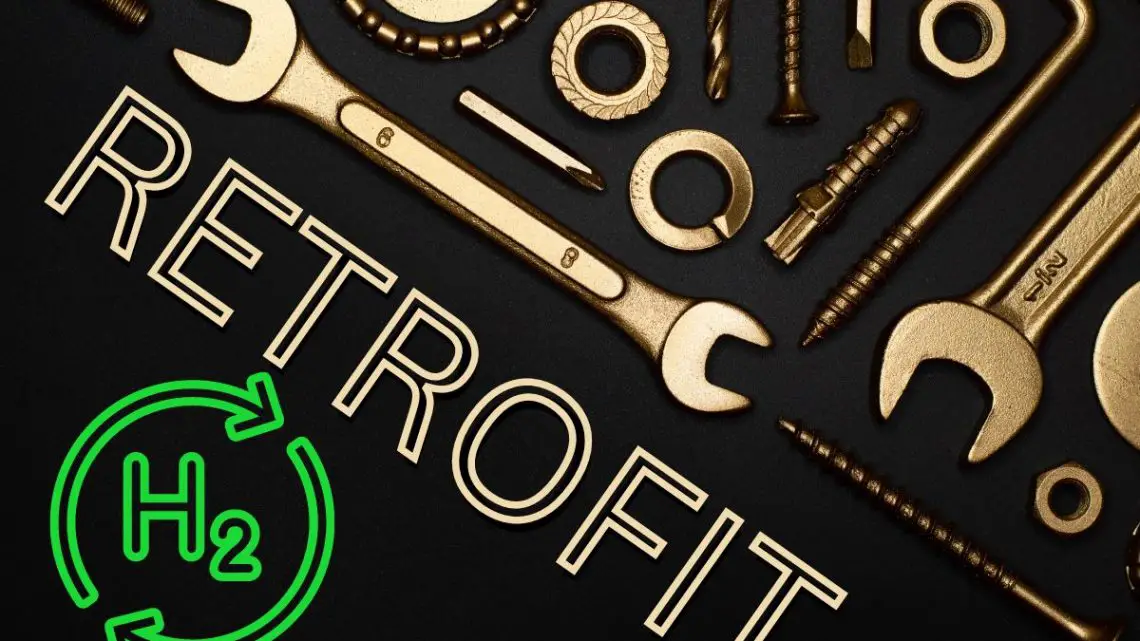
Engineers retrofit diesel engine for clean hydrogen combustion
October 17, 2022The scientists claim to have used the H2 in a dual-fuel injection system and boosted efficiency 26 percent.
University of New South Wales (UNSW) engineers have announced that they successfully retrofitted a diesel engine for hydrogen combustion to slash the carbon emissions it produces.
The research team developed the dual-fuel injection system across the last eighteen months.
After a year and a half of development, the scientists say they have developed a dual-fuel injection system uses hydrogen combustion for 90 percent of its fuel. They have also stated that they are certain that the retrofits will become possible to complete within a matter of months.
This move could be a helpful one for fleet owners seeking affordable ways to comply with decarbonization regulations and for vehicle sellers that are watching the deadlines banning the sales of fossil fuel-powered vehicles approaching quickly within the next decade in many countries.

While battery electric cars have become quite popular in passenger vehicles, long-haul trucking and heavy lifting industries don’t see the same opportunity in that technology. The reason is that those vehicles need large amounts of power and need to be able to operate for considerable amounts of time without having to wait hours to recharge.
Though there are a limited number of semi trucks on the cusp of reaching production this year, most heavy-duty vehicle makers are focused on H2. Unfortunately, overhauling the entire heavy vehicle industry is going to require years or even decades, making retrofitting an area with substantial potential for bridging the gap while still slashing carbon emissions.
By retrofitting diesel to hydrogen combustion engines, existing fleets could be made to burn cleaner.
Though the vast majority of H2 currently produced is made using fossil fuels with unabated emissions, a growing number of projects are in place to produce green H2 using renewable energy, so that both the production of the fuel and its use can be done essentially carbon emission-free.
The UNSW hydrogen combustion engine team was led by Professor Shawn Kook of the School of Mechanical and Manufacturing Engineering. They showed that the design could reduce the CO2 emissions to 90 grams per kWh, which represents a reduction of about 86 percent when compared to a conventional diesel engine.



 With over 15 years of reporting hydrogen news, we are your premier source for the latest updates and insights in hydrogen and renewable energy.
With over 15 years of reporting hydrogen news, we are your premier source for the latest updates and insights in hydrogen and renewable energy.
This could be the best solution for the EU and the thirteen member states for a quick and smooth transition for the trucking industry to using hydrogen. The EU should carefully consider providing incentives to the transportation industry to make this engine conversion. Hydrogen fueling stations will soon be built along most of the major highways throughout Europe.
Energy for the world
Dear Sirs,
As an Auto engineer for more than 40 years, I am very interested to learn about your system. And obviously if the system is viable it will go well with my papers in promoting alternative and retrofit solutions to reduce exhaust emission in the Malaysian market.
Most times, we talk about the vehicle fleet owners, but having been in spare part and OEM manufacturing business management, the Stockists would be badly affected when Vehicles go “green”
We wish to avoid this.
Thank you and very best regards
Pawiz
Felicitaciones. Son noticias muy prometedoras que los Gobiernos deben conocer y anticipar políticas para incentivar la conversión, a la par de apoyar y subsidiar la Cadena de Valor del Hidrógeno Verde, lo que en Australia y Chile debiera ser imperativo, por las favorables condiciones climáticas para generar energías renovables (Sol y Viento sobretodo) y, a partir de ello, la fabricación de H2V.